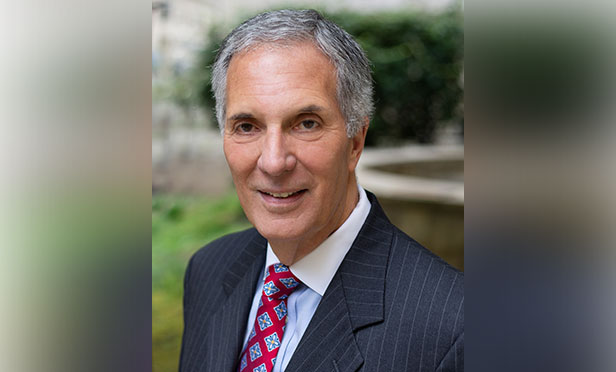
 To run a successful firm, think less "James Bond" and more "Special Ops," Robert Fragasso says.
To run a successful firm, think less "James Bond" and more "Special Ops," Robert Fragasso says.
Breakaway brokers need a secret plan of action — and maybe even the use of subterfuge — when exiting a wirehouse. Indeed, they must map out maneuvers as did American forces in World War II plotting the D-Day invasion of Normandy, RIA Robert Fragasso argues in an interview with ThinkAdvisor.
Once they make that break, they need to put a detailed process in place — and they must avoid the mistake of trying to do it all themselves, he says.
Founder of Fragasso Financial Advisors, with five offices in Pittsburgh and environs, the 48-year veteran FA has just released the second edition of his "Starting Your Own Practice: The Independence Guide for Investment Advisors, Attorneys, CPAs and Other Professional Service Providers" (Wiley- Jan.2020).
It's chock full of practical how-tos on making the big transition well-ordered and as trouble-free as possible.
Fragasso, chair and CEO of his RIA, went independent in 1996 after 23 years with large firms, notably PaineWebber and Shearson, and its successor companies.
By the time he broke away with his 11-person team, the firm had expanded to become Citigroup. That's when "Jamie Dimon took over and put complete emphasis on proprietary product," Fragasso recalls in the interview. And that is why the advisor left.
But on his own, he would learn that trying to control everything himself — in what he calls the "James Bond model" — is "self-defeating," serving only to "build an invisible ceiling" that hinders growth.
Once Fragasso, a former Marine, moved to the "Special Operations" model and "left James Bond behind," he more easily achieved his goals, he says.
Fragasso, whose group has expanded to 44, specializes in personal financial planning mainly for mass affluent individuals and families. Total assets under management: $1.6 billion.
The CFP, 75, is this month launching Fragasso Associated Advisor, a program in which FAs can subcontract their back and middle offices to his firm, thus availing themselves of a number of resources, including marketing and compliance support.
ThinkAdvisor recently interviewed Fragasso, who was speaking by phone from home in suburban Pittsburgh. He discussed essentials for sallying forth as an independent and the importance of creating a specific process for operating. "Making it up every morning when you come in" won't do, he says.
In the challenging year of 2020, the advisor racked up more business than in 2019 — "and we haven't been in the office!" he notes, alluding to working remotely. The RIA attributes this success to changing several procedures and systems in 2019 to "strengthen" the way the firm does business.
Here are highlights of our conversation:
THINKADVISOR: What should wirehouse advisors be thinking about when leaving to go independent?
ROBERT FRAGASSO: That can be tricky. It's called the "D-Day Invasion": We have to plan leaving with the secrecy, and in some cases, the subterfuge of the D-Day Invasion [turning point in World War II].
How does an FA successfully manage converting existing clients to their new business?
In 1996, we were 50% brokerage and 50% advisory clients. We converted the brokerage to advisory [accounts] by showing clients why it was in their interest to go to a fee-based discretionary account. But there was a handful who didn't see that value proposition. So we had to be strong enough to say, "We're not going to be able to serve you the way you wish. We don't believe that's the right thing to do — that's why we're making this transition."
Your book is a how-to on going independent. Safe to say that being adequately capitalized is critical, true?
Yes. But it shouldn't be with debt. It should be with your own capital because you don't want to debt-service while you're trying to keep your doors open.
Choosing a market niche is key, correct?
The niche is the marketplace you serve, not your technical skills. Our niche is the family unit, and we match the portfolio manager to what's called for in the financial planning. This is a replicable [process].
Value proposition is another important consideration. Please discuss.
Niche and value proposition are one and the same. You can't be everything to everybody, or you will fragment yourself and dilute your message.
What are other top to-do's for FAs who go into business for themselves?
Number 1 is process — the foundation for any good enterprise. People assume that intelligence is going to get us through. That's just ante to get us in the game. You have to have process. You need a [practical] business plan that spells out the objectives and all the details, including the allocation of duties. That's all wrapped up in process.
Do you just leave that process in place as you proceed?
You create it, work it and stay with it. It stretches though every aspect of running the business. But you constantly modify it because things don't always go just the way you think they will. Continue to fix the process going forward. It's better than making it up every morning when you come in.



